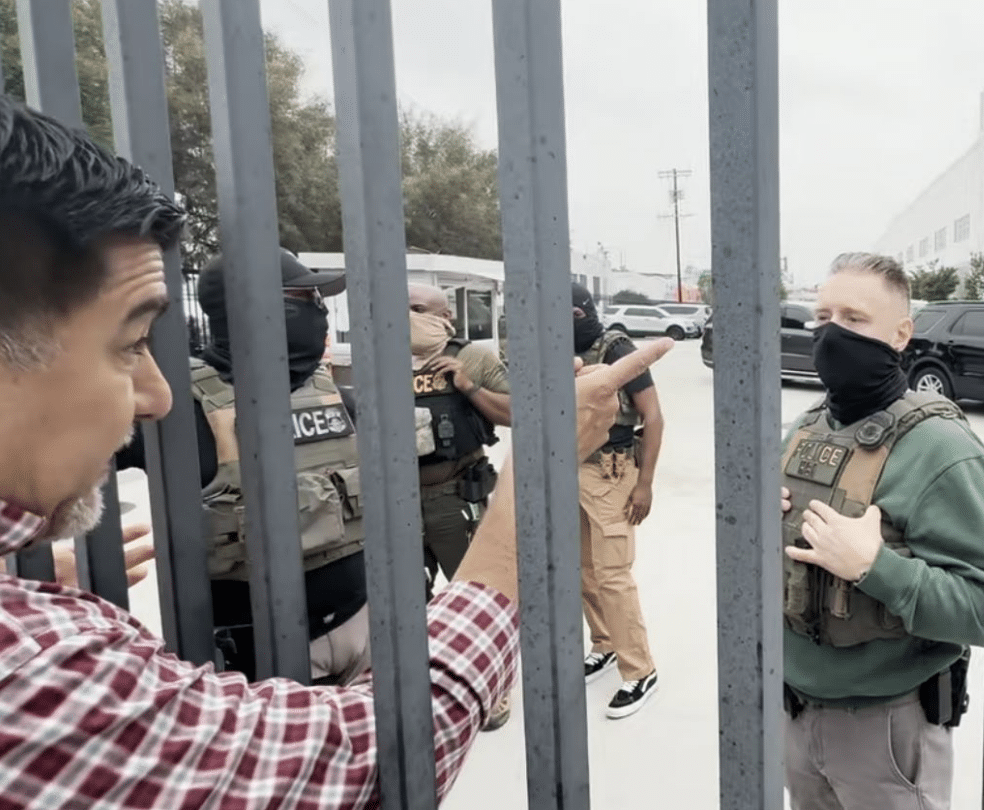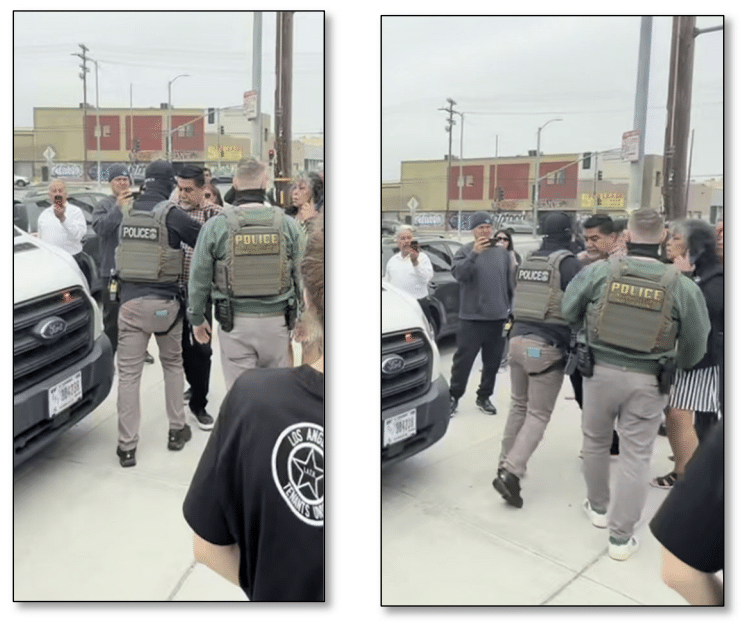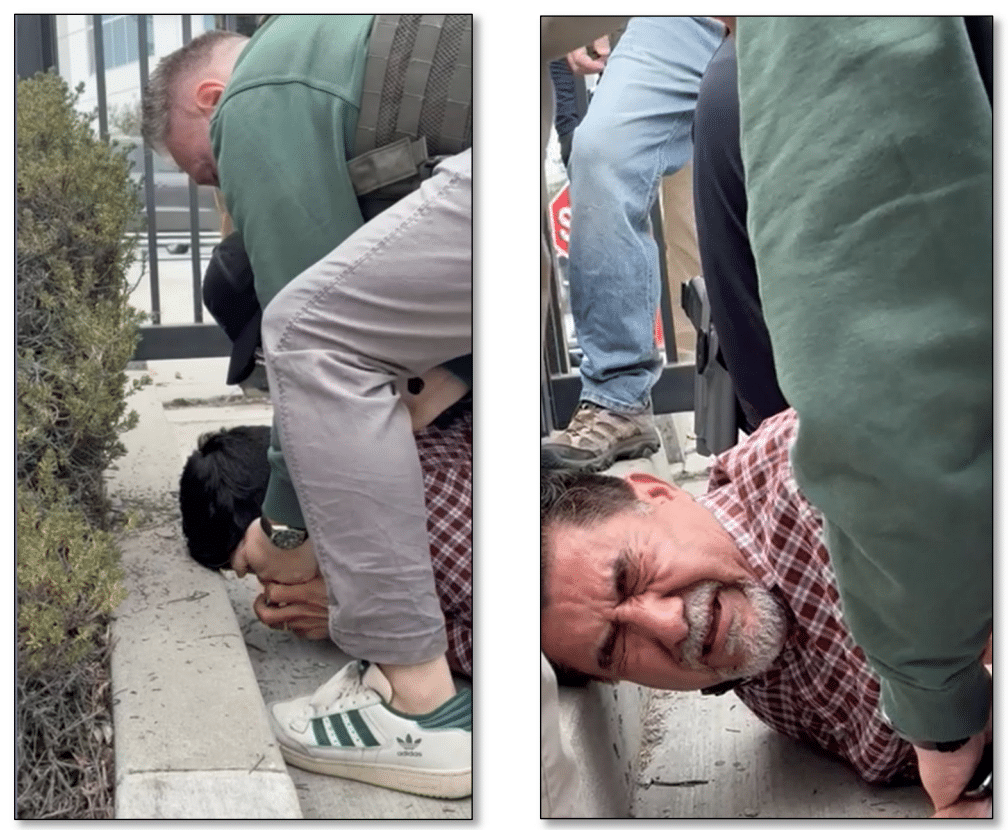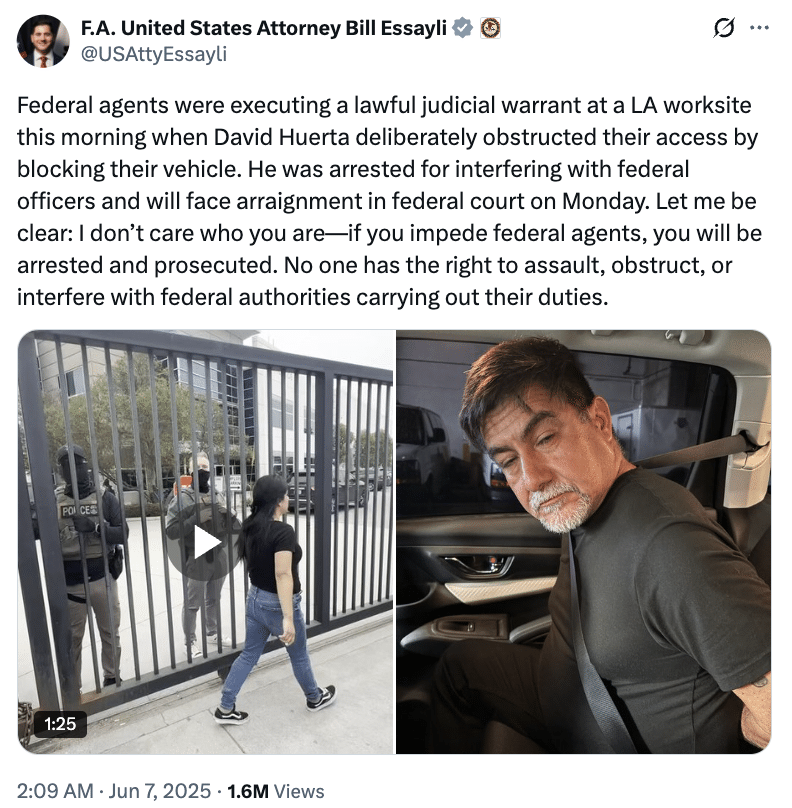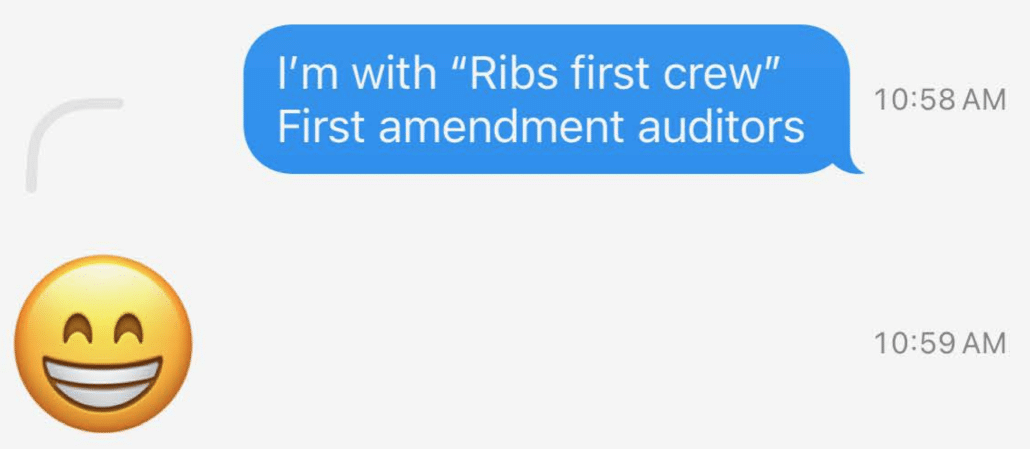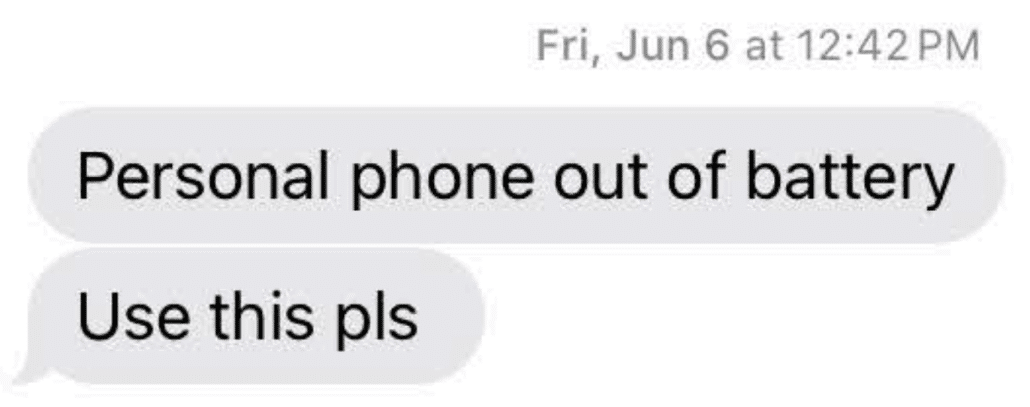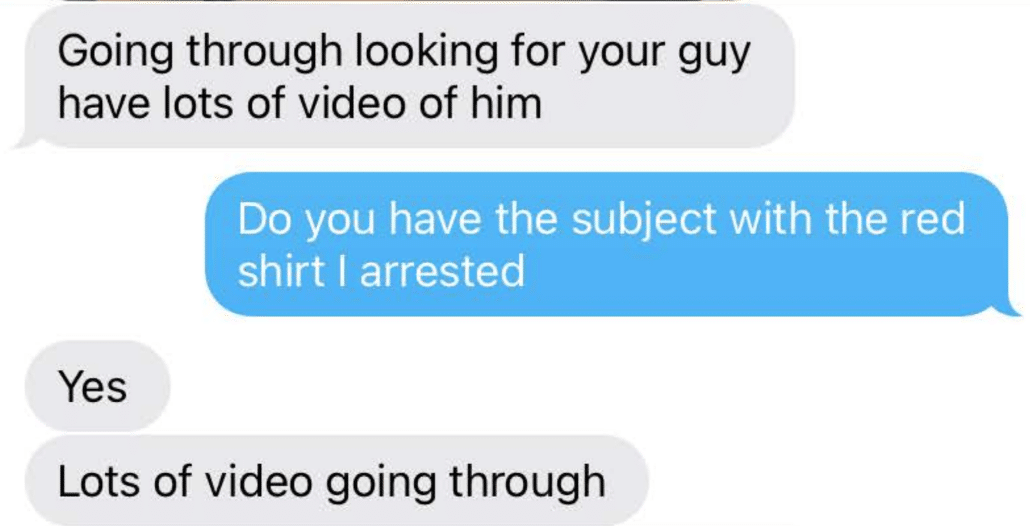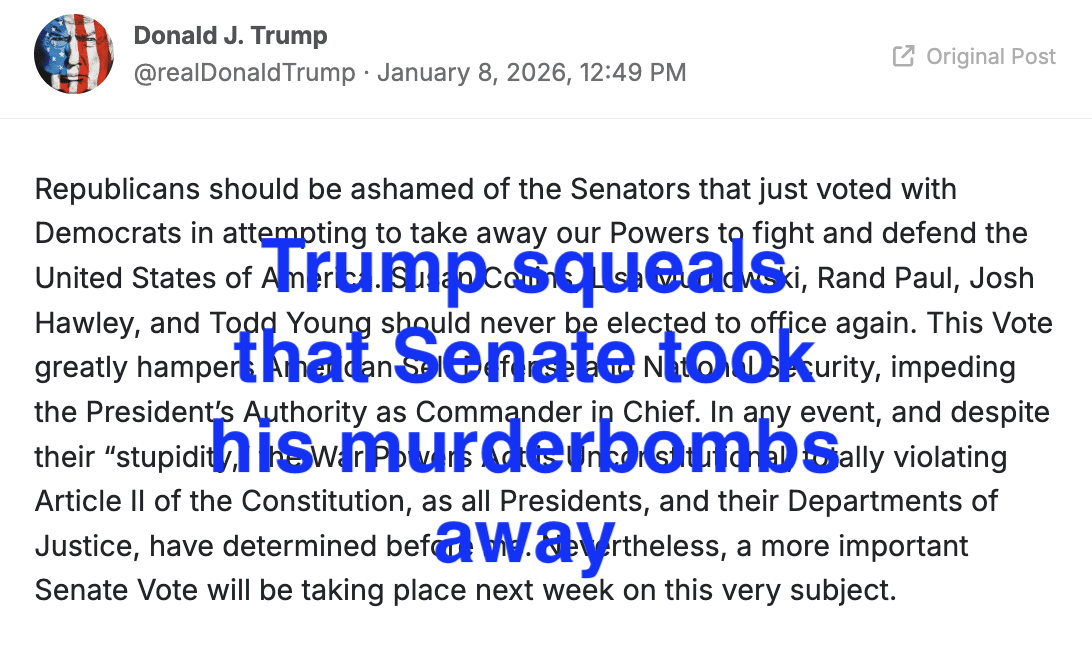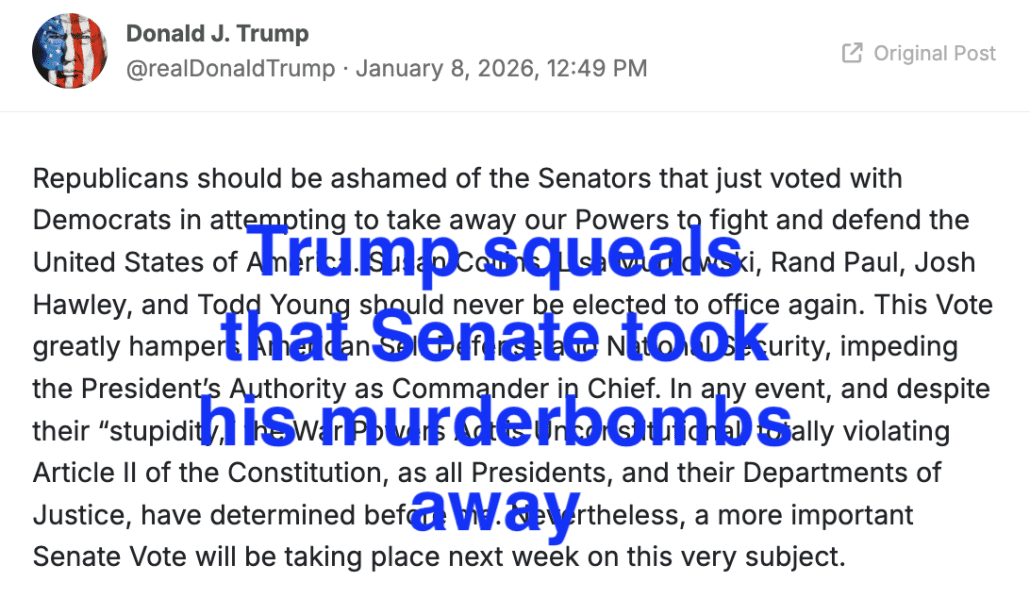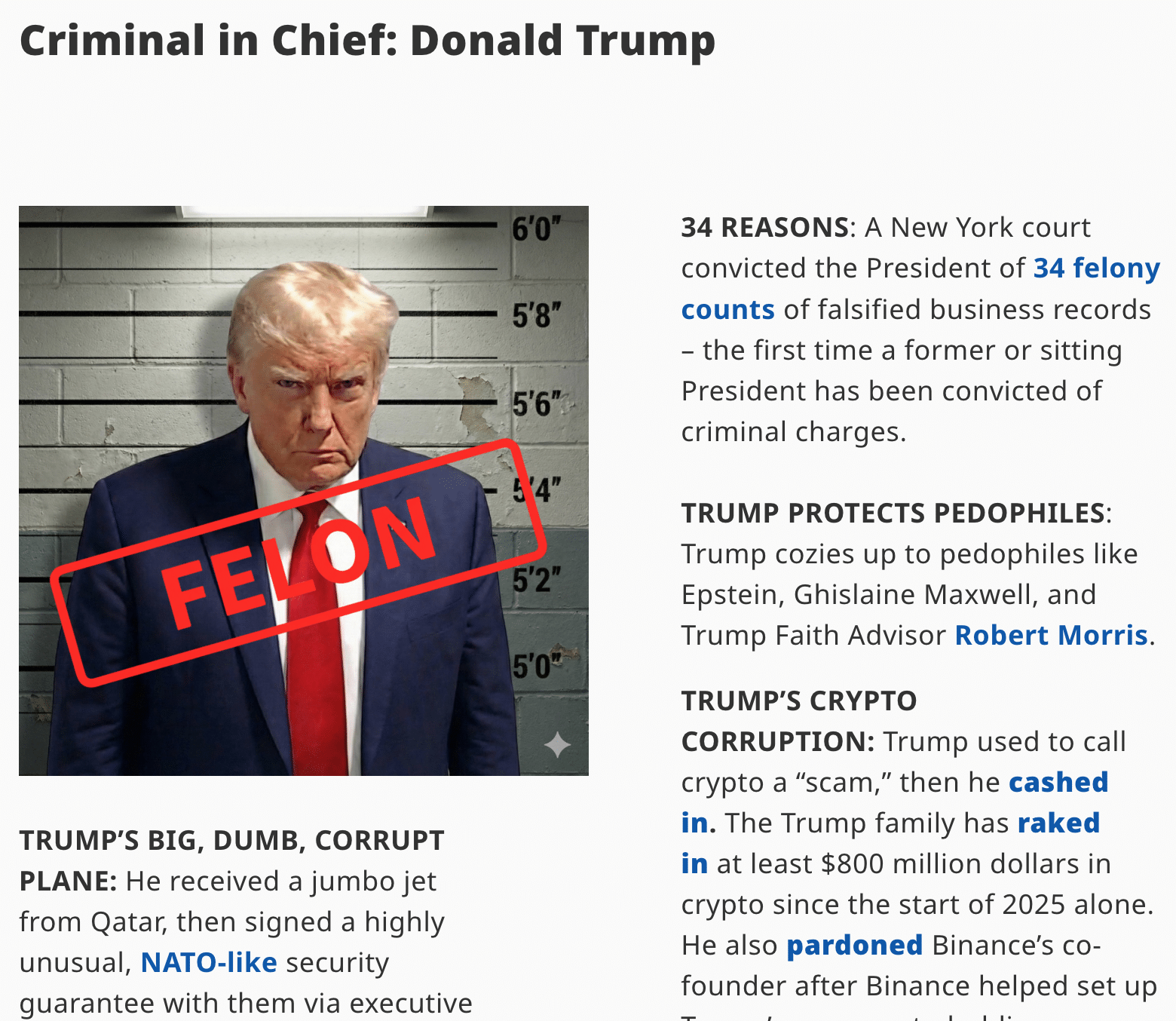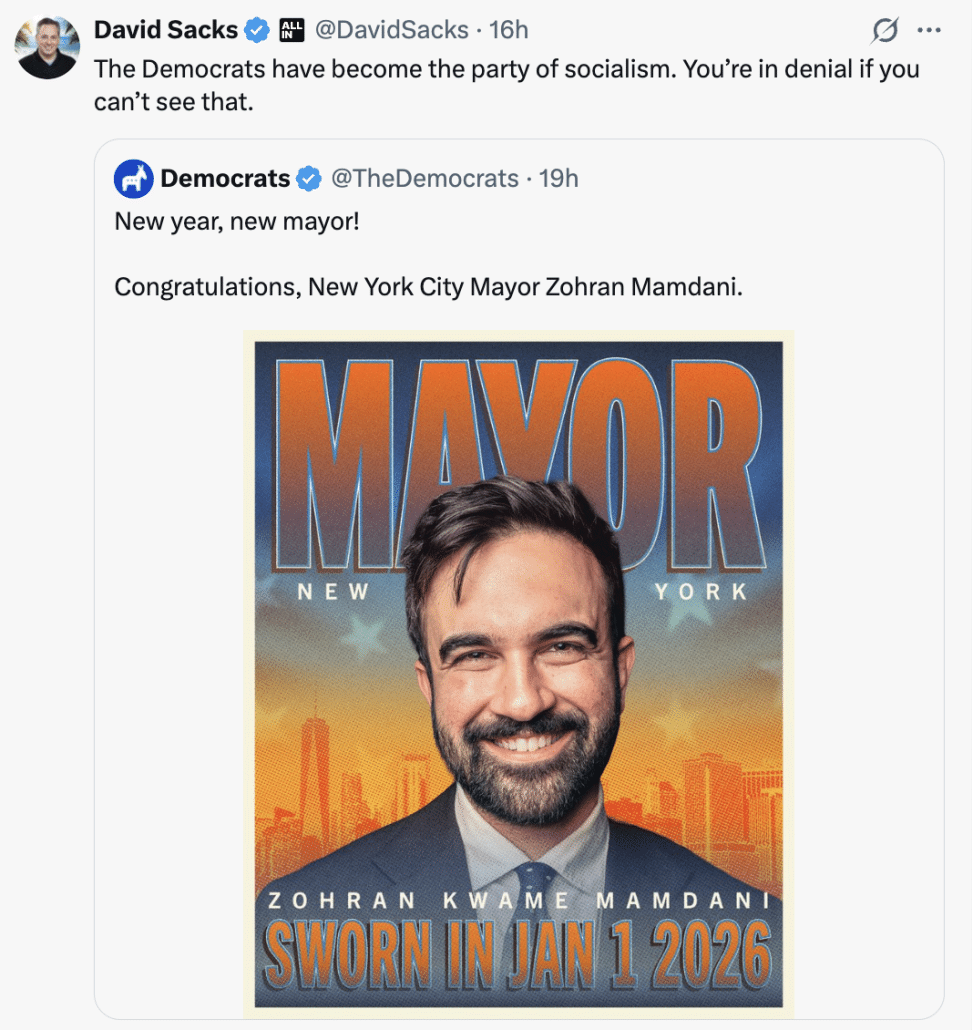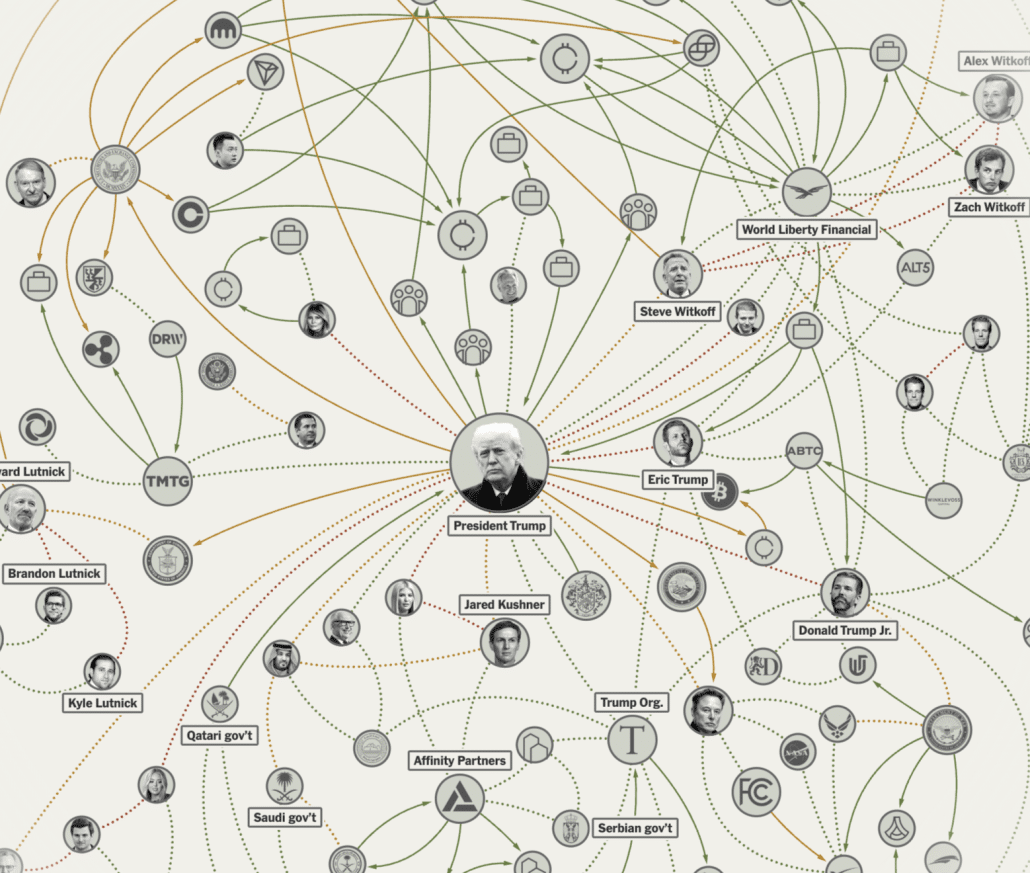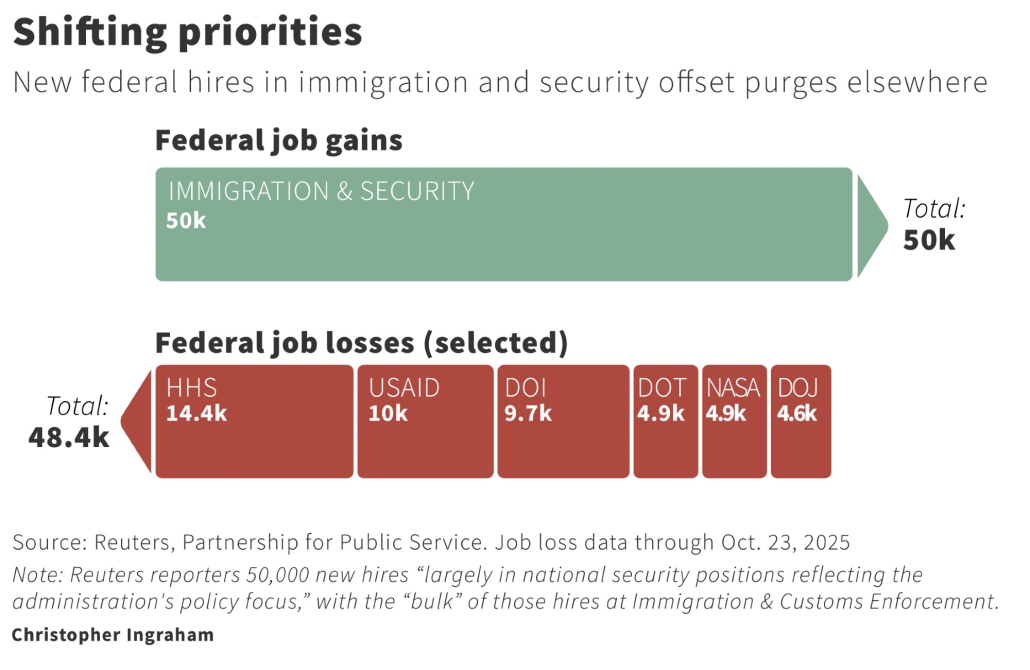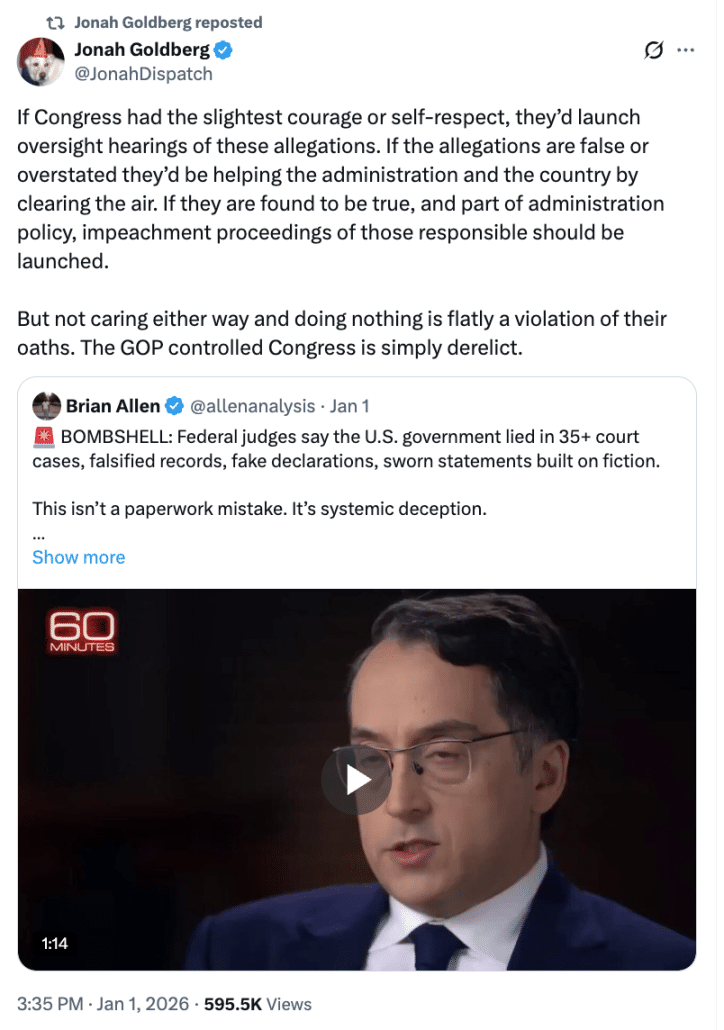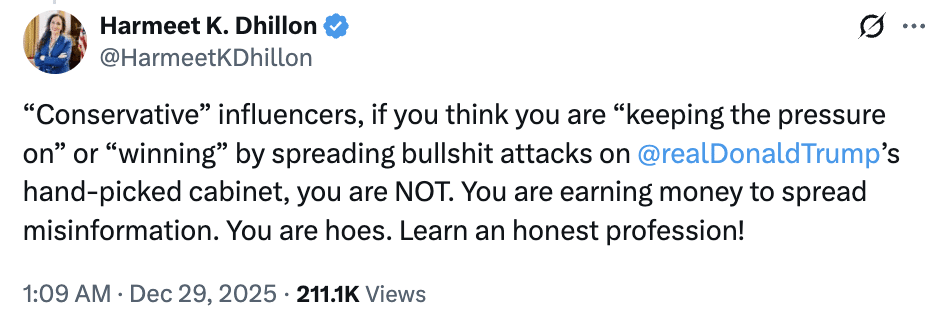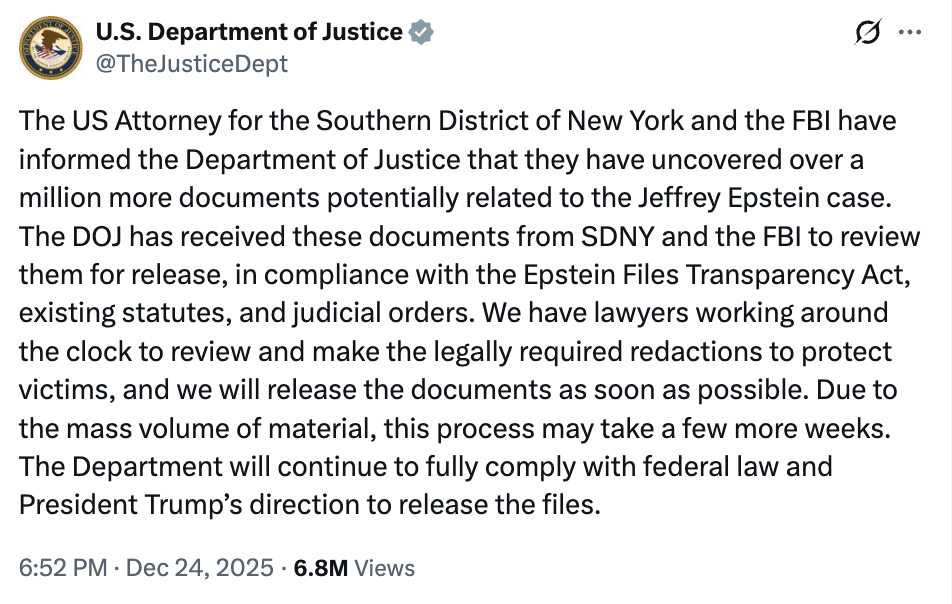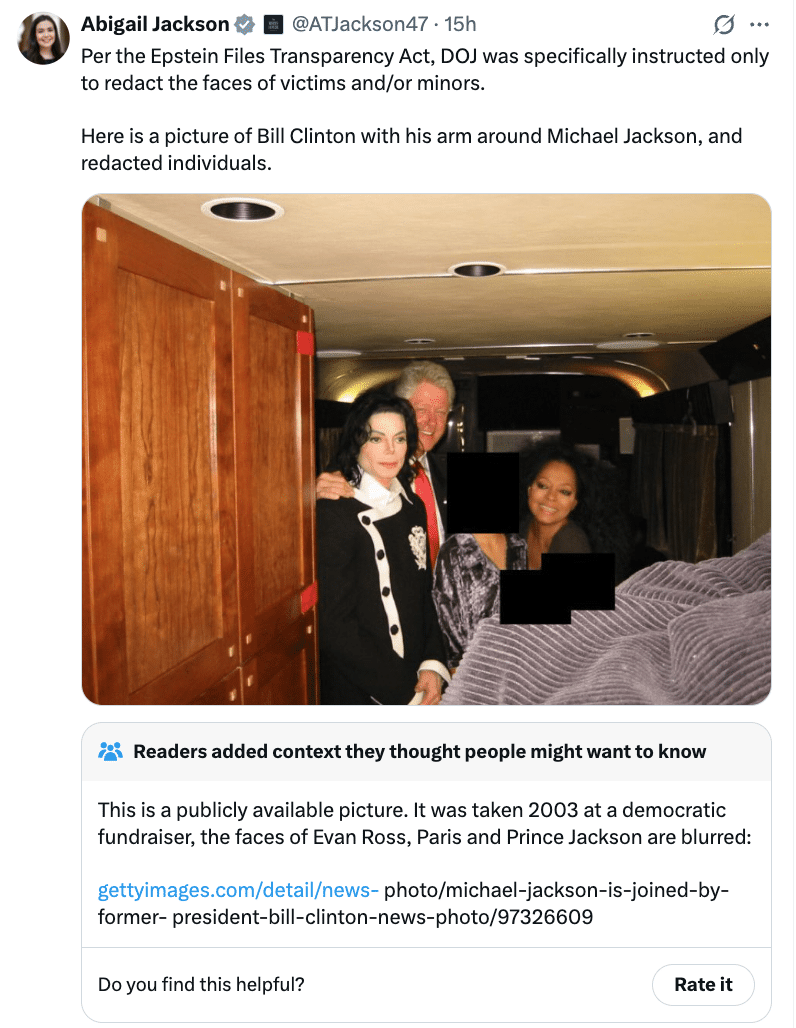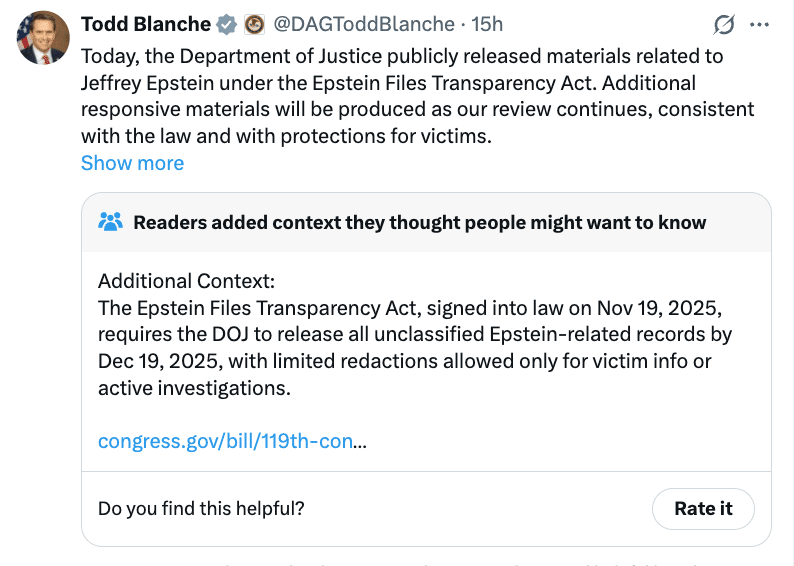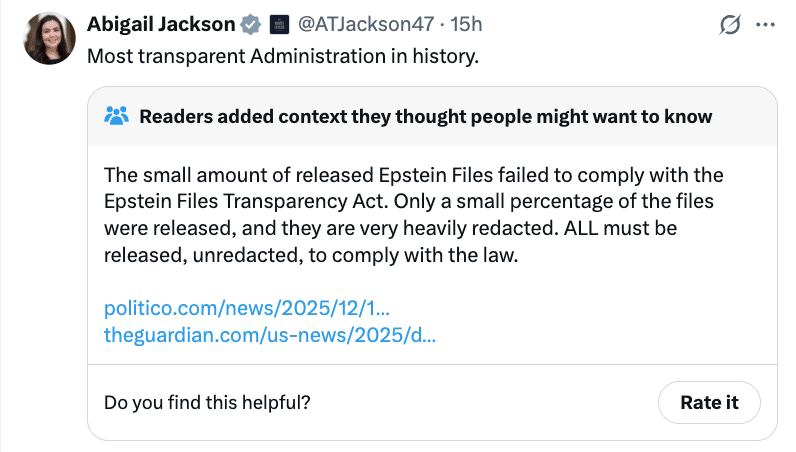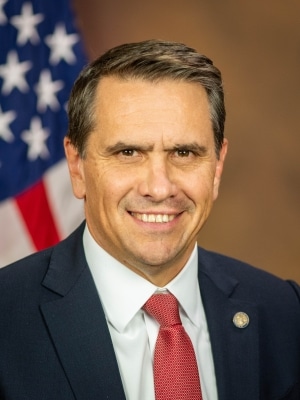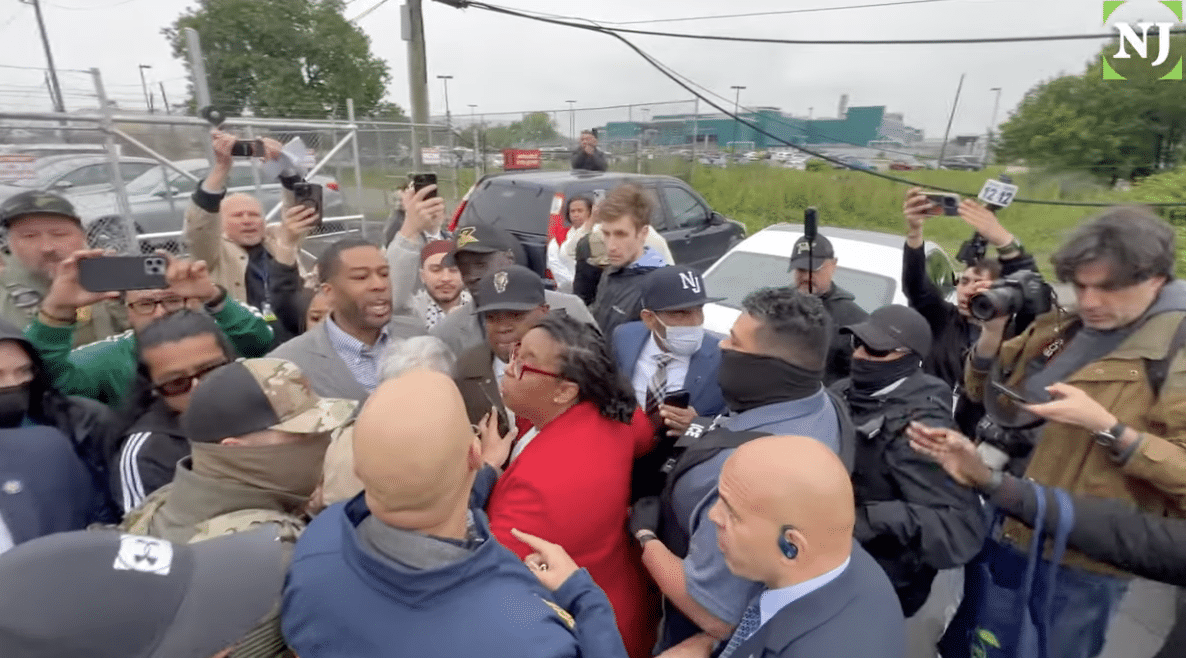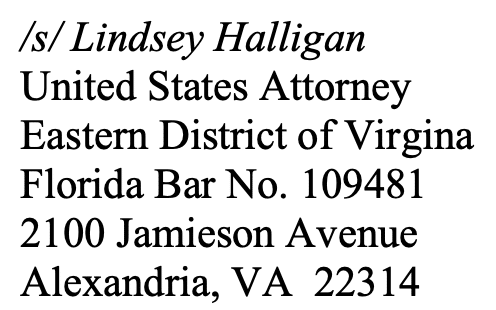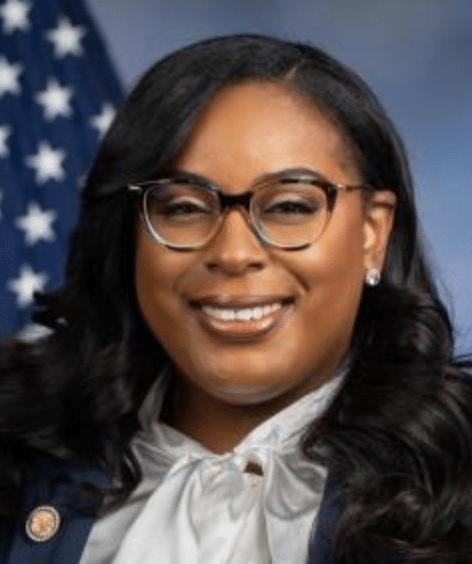DHS Assaulting Protesters Because Goons Believe They Are “Vicious, Horrible People”
215 days before Jonathan Ross shot Renee Good dead after Good’s wife, Becca, engaged in First Amendment protected taunting of Ross, HSI Special Agent Ryan Ribner rushed through a gate at at a Los Angeles garment factory and — along with ICE Officer Carey Crook — assaulted SEIU CA President David Huerta, targeting Huerta rather than several other people who were more directly blocking a van, the purported crime in question.
Huerta argued in a motion to dismiss on First Amendment grounds submitted last week, days before Good’s killing, that Ribner and Crook did not arrest Huerta for obstructing a Federal officer, which is what got charged after DOJ abandoned a claim that Huerta had conspired to impede officers, much less the assault that they contemplated charging initially, but because Huerta had engaged in that First Amendment protected taunting.
It may well be that Ribner lied when he claimed he didn’t learn Huerta was a powerful union leader until after he assaulted him. Months later, the undercover officer working the crowd, Jeremy Crossen, admitted people in the crowd referred to Huerta as a union “member,” though that didn’t appear in either the texts that got shared with Huerta in discovery — which described the institutional affiliation of others — or a countersurveillance report he wrote weeks after the assault, where he included the research he had done after the fact for everyone but the state president of one of the most powerful unions in the country, the guy who got assaulted.
But if Huerta wasn’t targeted because he’s a powerful Democrat (in Ribner’s report there’s a weird claim that the agent guarding Huerta in the hospital only “feigned” interest when Mayor Karen Bass showed up to Huerta’s hospital room), then the record shows little else beyond speech.
According to videos turned over in discovery, Ribner started predicting Huerta would go to jail based solely off taunting, mostly about their masks.
Mr. Huerta asked them, “How are you keeping us safe?” Agent Ribner’s response was: “You are gonna go to jail. You are not impeding us. You are not impeding us. You’re going to jail, [unintelligible from 0:00:09–00:11] and you’re going to jail.” Id. at 0:00:01–00:12. Mr. Huerta then repeatedly asked him, “What are you doing?” and told him, “I can’t hear you through your fuckin’ mask,” and pointed at Agent Ribner. Id. at 0:00:14–00:17. Agent Ribner can be heard replying: “You’re gonna go to jail, you’re going to jail.” Id. at 0:00:17. For the next few minutes, Mr. Huerta continued to protest in front of the gate, including conversing with Agent Ribner, Officer Crook, and other officers, including, according to agents’ after-the-fact reports, “aggressively”4 asking the officers to identify themselves, stating “What are you going to do… Where’s your fucking badge number… What’s your fucking name?” Ex. B at 9. He also allegedly stated: “You’re not police! You’re not fucking police! You’re not keeping me safe!”
Indeed, Ribner’s own report describes himself predicting that Huerta and others would obstruct them, so he instructed his colleagues to be prepared to make arrests.
Later, HUERTA approached the gate and began yelling and about wanting to see agents’ faces. At times HUERTA was putting his arms through the fence as he yelled, and on at least one occasion he pointed as well. HUERTA stated, “Your boss” [believed to be referring to President Trump] wants things “made in America”. HUERTA went on and said that the things were manufactured inside of Ambiance. HUERTA appeared to be aggressive and angry by his voice, demeanor, and facial features. At some point HUERTA walked up to the gate and asked either about the purpose or legit impact of agents’ duties. SSA Ribner asked HUERTA the purpose of what he was doing [regarding being belligerent with law enforcement]. HUERTA made a comment that he lived in the community and /or cared about the community. SSA Ribner advised HUERTA that “we” [agents] also live in the community. SSA Ribner made the comment to HUERTA in the hopes of obtaining HUERTA’s compliance by advising HUERTA that law enforcement agents are just like him and care about the community and are also part of the demographic of the southern California area.
[snip]
STRONG, and LENEHAN would highly likely block or impede law enforcement vehicles, cause damage to USG property, or commit a battery against agents as they attempt to depart. SSA Ribner informed the DEA agents that if anyone in the crowd impedes, blocks, or physically batters an agent that arrests would be made. [my emphasis]
“He pointed as well”!!! And from that (and perhaps in his view that Huerta was Hispanic? — though several other people present looked more obviously Hispanic), Ribner concluded Huerta was aggressive.
Even though a vehicle had already entered the gate Ribner stood behind without major obstruction, Ribner predicted that a white detainee van that pulled up shortly after the conflict with Huerta occurred, while the gate was still closed, would incite some response. Huerta was on the public sidewalk in front of the gate, though several other people were more directly in front of the van’s path. But when the gate did open, at which point Huerta was to the side of the van, Crook and Ribner rushed Huerta and pushed him down.
That’s when Ribner conducted a brutal arrest, even applying pepper spray to his hand and smothering Huerta’s face with it, because — he claimed after Huerta sought hospital treatment for a head injury — Ribner did not want Huerta to hit his head on the curb he was driving it into.
SSA Ribner decided to deploy a chemical agent (pepper spray) on HUERTA due to HUERTA actively resisting arrest, the angered crowd, and HUERTA’s safety as his head was near a cement curb and SSA Ribner didn’t want him suffering an injury. Due to the concern of over spraying the chemical agent with others nearby (SDDO C and the crowd) or spraying HUERTA directly in the eyes, SSA Ribner decided to spray a small amount of the chemical agent in his hand and place his hand near the upper nose area of HUERTA’s face. HUERTA began to make noises and say that he couldn’t breathe.
Huerta’s head got slammed, and Huerta sought immediate hospital care. In his arrest report — again, written after he learned Huerta had a head injury — Ribner describes feeling no lump on Huerta’s head but said he did so to help Huerta to clean the pepper spray that Ribner’s post hoc reports claim he specifically avoided getting in his eyes out of Huerta’s eyes.
Agent’s Note: During the arrest encounter SSA Ribner never personally observed HUERTA strike his head on the ground. Additionally, when SSA Ribner was decontaminating HUERTA, he placed his hands on the back of HUERTA’s head to help move his head back to place water in his eyes and face area. SSA Ribner never felt any bumps or cuts on the back of HUERTA’s head. Additionally, SSA Ribner didn’t observe any physical bumps or cuts on HUERTA’s head.
As so often has happened after DHS assaults and hurts someone, that night make-believe US Attorney Bill Essayli accused Huerta of assault.
And sometime later, Ribner was in a meeting with Todd Blanche, and Essayli promised Blanche this would go to trial in September or October.
GS Ribner stated he spoke with United States Attorney Bill Essayli about this case and others, such as the Deputy Attorney General (DAG) and Special Agent in Charge Eddie Wang. During the briefing, USA Essayli told the DAG that “this case is going to trial in September or October
It did not go to trial in September or October. Instead, as AUSAs learned more about what happened, they gave up the felony charge.
As you can tell from Ribner’s attempt to build in deniability for the head injury, Ribner obviously tried to reverse-engineer his actions, to provide some excuse for the assault.
As I noted at the time, when Ribner wrote the arrest affidavit back in June, he absurdly claimed that Huerta intimidated him because he banged on the gate.
“Banged on a gate” and “pointed as well”!?!?! No wonder they asked to detain Huerta pretrial.
Ribner’s initial arrest report (the same report where he denied knowledge of a head injury, which he wrote almost two weeks after the arrest) is full of things — including some alleged assaults by protesters, but also including exchanges like the local San Diegans who, days before the Huerta assault, shouted “shame” until ICE abandoned their effort to raid a local restaurant — that Ribner cited to explain why he implanted an undercover agent at the scene to seek out a vast conspiracy Ribner was sure existed.
Mostly, though, I suspect it was the shame.
Huerta was lucky. Because he’s an American citizen, he couldn’t be shunted off to a GEO prison and refused access to his attorneys, which is what make-believe US Attorney Essayli did to prevent Carlitos Ricardo Parias from unpacking the problems with the claims of assault against him. Because — unlike Renee Good — Huerta survived, DOJ had to try to invent a criminal case out of Ribner’s own actions.
But, it appears that by August, after several delays in attempting to indict Huerta, the whole charade started falling apart. Ribner’s report (which, on top of the obvious retconning of his actions, did not match the documented timeline in a few other areas) and the absence of any crime was bad enough. But the witness stories didn’t match, even though there’s good reason to believe they were coordinated after the fact. In addition to claiming he noticed Huerta arrive in real time rather than after Ribner called him out, Crossen described Huerta push back, something not captured in video (and which Crossen may not have been able to see from where he stood). Carey Crook (the guy who first pushed Huerta), falsely claimed Huerta had splayed himself across the van in an X, and similarly invented a claim that Ribner had sprayed Huerta, rather than smother his face in pepper spray. The driver of the van, Brian Gonzales, didn’t remember seeing Huerta in a first interview, but in a follow-up the day before he would start a new permanent job at CBP, he did, though he disputed Crook’s claim that Huerta had splayed across the van grill.
Crossen explained that his video didn’t capture Huerta in front of the van because he started filming just after that. He said he did all this on his personal phone because his government phone wasn’t working that day (in addition to the motion to dismiss, Huerta is also demanding the Cellebrite metadata for the texts extracted from the personal phones both Ribner and Crossen used that day). He admitted that Ribner gave instructions on how to write up his countersurveillance report, but didn’t tell him what to say.
Ribner’s was the last interview from this period when DOJ was stalling the case, a week before a new case opening date possibly focused on Ribner. When asked to describe his actions, as problems with the arrest must have become evident, Ribner explained simply that the peaceful protesters were “vicious, horrible people.”
GS Ribner stated HUERTA and other protesters are “vicious, horrible people”.[In reference to a still photo of video 2774 at 0:03], GS Ribner identified HUERTA. He recalled telling HUERTA, “You better not block the cars”. He stated that HUERTA was not in the way of vehicles or personnel at this point.
Stephen Miller has told all Trump supporters, especially those who work at DHS, that people who support immigration are vicious, horrible people. And he gave them rules of engagement that invited assaults like this, assaults they simply bury in often-failed attempts to criminalize the victim.
It’s surprising it took seven months before someone Stephen Miller has defined as a vicious horrible person got killed.
Timeline
June 6: Arrest
9:00 AM: HSI task force officer (and Inglewood cop) Jeremy Crossen arrives under cover
9:20: Agents start executing search
9:57: Crossen interacts with Asian woman
10:26: Crossen interacts w/Hispanic protestor, claims he is monitoring the police
10:33: Crossen texts Ribner
11:07: Crossen sees pick-up without plates whose Hispanic driver films
11:19: Crossen describes a Hispanic woman with a neck gaiter; his report provides background on a Kids of Immigrants sweatshirt she wears; start time of alleged criminal conduct
11:25: A sedan enters the gate; after an agent instructs those filming it to step away, they do; Crossen texts Ribner,
11:31: A Hispanic woman whom Crossen IDs by name shows up, makes phone calls
11:36: Crossen describes a white woman by name, describes that she masked as the crowd grew
11:37: Crossen describes the Hispanic leader of ACCE Action, Council Member Jose Delgado, show up, make calls
11:49: Crossen claims he sees Huerta walk up
11:51: A white woman from Tenants Union starts yelling obscenities
11:53: Ribner instructs Crossen to focus on Huerta
11:54: Huerta and others sit in front of the gate
12:01 PM: Ribner leaves the property and assaults Huerta [note his report timeline goes haywire in here]
12:00-12:09: Crossen texts Ribner
12:15: Crossen claims van arrives (his description describe others who were in front of the van, then says Huerta also was)
12:15: Ribner calls 911 (claiming this is about pepper spray)
12:18: Crossen describes a scrimmage line
12:20-12:40: Discussions about Huerta’s attempt to call his attorney
12:30: LAFD responds; Huerta asks to be brought to the hospital; Crossen describes LAFD arrival this way:
At approximately 12:28 p.m., TFO Crossen observed a Los Angeles City Fire truck with activated emergency lights and loud audible siren, attempting to gain entry to the business, still being blocked by protestors, to render aid for HUERTA, inside the business, who had been exposed to OC Spray, during his arrest.
12:40: Ribner reports arrest to CACD US Attorney office
12:42: Ribner tells Crossen his personal phone is out of battery, asks him to use his government one
12:47: Ribner admits he used pepper spray
1:05: Ribner speaks to USAO again
1:30: Huerta taken to hospital w/agent in car
2:45: Ribner asks Crossen for pictures of Huerta
Unmarked time: Mayor Bass shows up to hospital room; they ask her to leave (and she does)
9:12: Crossen sends last clip from videos to Ribner (the discovery turned over provides nowhere near the “4 hours” or “100 videos” that Crossen told Ribner, five hours earlier, that he had taken (though the defense did not include all the texts in their exhibit)
9:36: Ribner obtains warrant for Huerta’s phone
10:30: Huerta attorney turns over the phone
June 8: Huerta charged with felony conspiracy
June 9: Case opened
June 17: Date created for one photo provided in discovery
June 19: Initial incident report; Ribner would later (in his September 10 interview) admit he wrote the report from memory and simply did not “recall that he told HUERTA, ‘You are not impeding’. He does not know why he did not include that statement in his report and agrees that his statement could sound exculpatory.”
June 23: Countersurveillance report from Crossen
July 2: Second set of discovery
July 17: Third set of discovery
July 28: Fourth set of discovery (including agent texts)
August 20: USAO interviews Brian Gonzalez, who drove the van allegedly blocked
August 27: USAO interviews Carey Crook; he told AUSAs that, contrary to Ribner’s claim, Huerta did not assault him
August 27: USAO interviews Crossen
September 9: USAO reinterviews Gonzalez; he says he does not remember Huerta straddling the van, as Crooks claimed
September 10: USAO interviews Ribner
September 11: Gonzalez starts at a new job at CBP
September 17: Later case opening date, possibly focusing on the lying agents
October 17: Huerta charged with misdemeanor
November 5: Huerta’s attorneys ask AUSA to identify the obstructive conduct
December 19: AUSA finally provides vague description of conduct

